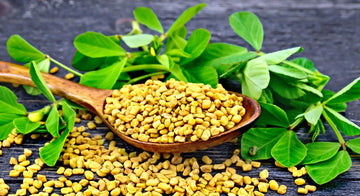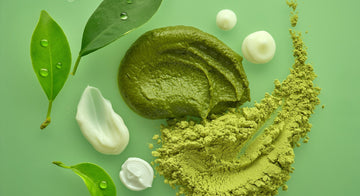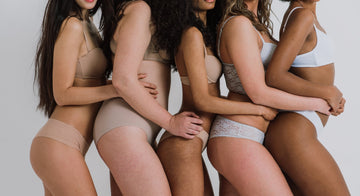Fenugreek: The plant with a thousand properties

Fenugreek ( Trigonella foenum-graecum ) is an herbaceous plant belonging to the Fabaceae family, known and appreciated since antiquity for its numerous beneficial properties . Originally from the eastern Mediterranean and western Asia, fenugreek is now cultivated in various parts of the world, mainly in India, China, North Africa, and the Middle East. For centuries, its leaves and seeds have been used not only in cooking but also in traditional Eastern and Mediterranean medicine, as well as in cosmetics, thanks to their extraordinary active ingredients.
Origin of the plant
Fenugreek has deep roots in human history. It was used in Persia and ancient Egypt to prepare natural remedies and for the embalming of bodies. Consider that an Egyptian papyrus from 1500 BC lists fenugreek seeds as a common ingredient in the cuisine of the time.
The Greeks and Romans also appreciated its qualities, so much so that they used it to improve the physical performance of athletes.
The name "fenugreek" can be a bit misleading, because the plant has nothing to do with hay as we know it. Instead, it refers to its ancient use as animal feed.
The word Trigonella, on the other hand, originates from triganos = triangular, in reference to the triangular shape of its seeds.
Use in cosmetics
Fenugreek has also gained popularity in the world of natural cosmetics thanks to its regenerating, emollient, and anti-inflammatory properties. Let's look at some of the main benefits that make it a valuable ingredient in body and hair care.
1. Hair care
One of the best-known uses of fenugreek in cosmetics is for hair treatment. Fenugreek seeds are rich in proteins, vitamins, mucilage, and minerals such as iron and zinc, essential elements for a healthy scalp and hair growth. It's used in strengthening packs or masks , ideal for combating hair loss and promoting thicker, shinier hair. It has moisturizing properties and also helps fight dandruff and dry scalp.
2. Soft and radiant skin
Thanks to its antioxidant and regenerating properties, Fenugreek is an excellent ally for skincare . Using the powder or oil extracted from its seeds (but also their oleate), it is particularly effective in combating acne, thanks to the excellent antibacterial and purifying action of its active ingredients. The soothing effects of Fenugreek also make it an excellent treatment for skin irritations. Face masks based on Fenugreek leave the skin soft, hydrated, and radiant, while also reducing signs of aging. It's a complex plant, always loved and revered for its countless properties, making it a true universal panacea!
Curiosities and False Myths about Fenugreek
Beyond its use in cosmetics and food, Fenugreek is surrounded by a number of interesting facts that amplify its appeal.
- Natural breast milk stimulant : one of the oldest uses of fenugreek is as a galactagogue, i.e., as a stimulant for milk production in breastfeeding women.
- Aphrodisiac ingredient : In folk tradition, fenugreek is often considered a powerful natural aphrodisiac. Various cultures attribute its effect to its ability to rebalance hormone levels, thus improving both male and female libido.
- Used by ancient athletes : in ancient Greece, athletes consumed fenugreek to improve endurance and strength. Even today, some consider it a natural supplement useful for improving physical performance.
- For women before their wedding : it seems that the fenugreek plant was once highly valued in Arab countries as an ingredient to include in the diet of women about to get married. This was with the intention of making them more curvaceous and therefore more desirable to their future husbands.
- To increase breast size : it seems that fenugreek oil, if applied consistently to the breasts, can increase their volume and improve their firmness.
However, there is also a widespread and incorrect negative belief about fenugreek: it is frequently stated, especially online, that fenugreek is not recommended for pregnant or breastfeeding women. This is true, but only when referring to internal use, i.e., when it is ingested. External use, therefore application to skin or hair, does not pose any problems even in these cases, except for specific intolerances to the plant.
Fenugreek, as mentioned, is a plant with a thousand uses, whose qualities have been recognized and valued for millennia. From cooking to natural medicine, and even cosmetics, fenugreek continues to be a valuable and versatile resource for our health and beauty.
It's no coincidence that it's one of the most appreciated and used plants by those who love to do natural treatments, and it is in fact one of the ingredients present in several of our hair masks (Strengthening Mask, Fine Hair Mask, Anti-Frizz Mask), as well as being the star, as a bioactive hydroextract, in the Strengthening Shampoo and Spray.





